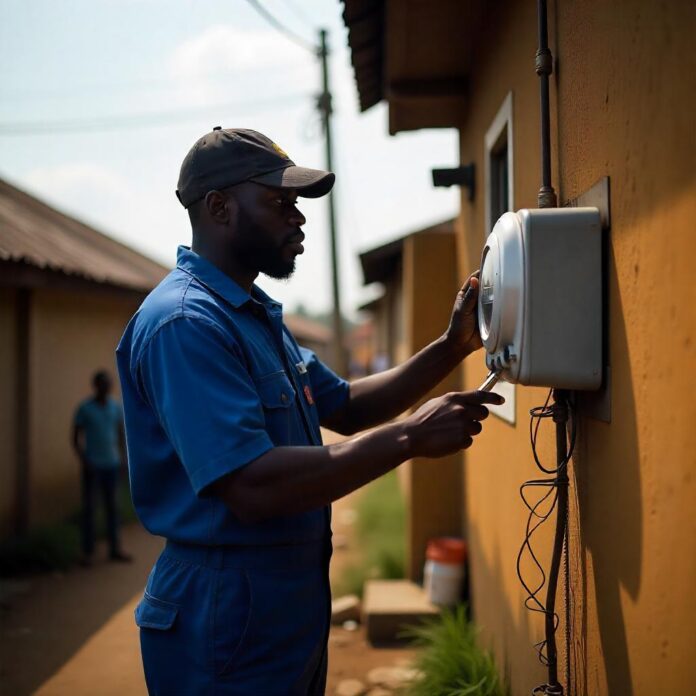Nigeria’s electricity landscape faces a critical challenge: 7.215 million (53.57%) of the nation’s 13.5 million registered electricity customers remain trapped without meters, subjected to exploitative estimated billing. This persists despite N1.5 trillion invested in metering programs since 2020. Launched in November 2023, the Presidential Metering Initiative (PMI) targets deploying over 6 million free smart meters by 2027, prioritizing Band A customers (20+ hour/day supply zones) starting Q4 2025. Transparent billing through this initiative could boost sector revenue to ₦3 trillion, slash Aggregate Technical Commercial and Collection losses from 40% to 20%, and fundamentally restore consumer trust in the power sector.
PMI Framework: Structure, Funding, and Targets
Governance & Implementation
PMI-Smart Grid Development Limited (PMI-SGDL) spearheads execution under a federal/state oversight board. Seven states including Enugu, Ondo, Ekiti, Imo, Oyo, Edo, and Kogi now fully regulate electricity under the Electricity Act 2023, with eleven others transitioning to this model.
Funding Architecture
| Source | Contribution | Meter Target |
|---|---|---|
| World Bank DISREP | $155M loan | 3.2 million |
| Federation Account | N700B allocated | 3.8 million + 130k DT meters |
| Meter Asset Fund (MAF) | N21B disbursed | 125,000 |
Key Targets by 2027
The initiative aims to create 20,000+ jobs for local assemblers and installers while generating ₦3 trillion in NESI income through reduced losses. A technological leap toward smart grid integration will enable real-time usage monitoring for consumers.
Progress Snapshot (July 2025): Hits and Misses
Deployment Status
April 2025 saw expectations of 75,000 meter deliveries, with 200,000 additional units anticipated in May 2025. However, distribution companies consistently denied receiving these units as of June 2025. The Band A customer focus continues despite persistent operational delays in high-consumption zones.
Consumer Impact
While NERC’s billing cap policy offers temporary relief to unmetered users, 53% of customers who paid under previous Meter Asset Provider programs still await refunds. Consumer advocacy groups highlight distribution companies’ profit motives in perpetuating estimated billing practices.
Controversies and Roadblocks
Implementation Failures
Allegations of meter diversion surround the N55.4B disbursed for the National Mass Metering Programme Phase 0 (2020-2022). Tensions flared when World Bank awarded $100M in contracts to Chinese firms, prompting protests from the Association of Meter Manufacturers of Nigeria who assert local capacity to produce 6 million meters annually.
Structural Weaknesses
Accountability gaps persist with no dedicated consumer-affairs unit at the Federal Ministry of Power. Distribution companies show resistance with only 41,855 of 143,929 MAF-funded meters installed, reflecting 30% compliance.
The Road Ahead: 2025-2027 Priorities
Critical Milestones
Successful full-scale rollout in Q4 2025 depends entirely on distribution companies and NAPTIN readiness. States like Edo and Kogi leverage the Electricity Act 2023 for localized metering drives. Future phases will integrate solar-compatible meters for revenue-positive households.
Expert Recommendations
Industry experts urge immediate auditing of N100B already disbursed to prevent fund leakage. Leveraging local manufacturers’ 250,000 ready-to-deploy meters could accelerate progress. Establishing a dedicated consumer affairs unit within the ministry would streamline billing complaints and policy input.
Metering as a Catalyst for Energy Justice
Addressing distribution companies’ profiteering, enforcing manufacturer quotas, and publishing transparent PMI milestones are urgent requirements. Consumers must actively demand installation timelines through NERC and report distribution bottlenecks. Ultimately, PMI must transcend hardware deployment to rebuild Nigeria’s social contract with power. As industry voices emphasize, a meter isn’t just a device—it’s a receipt for transparency.


